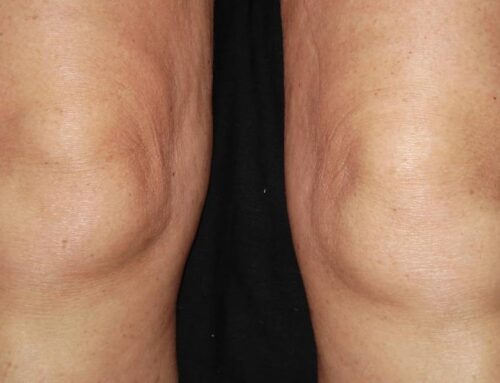Here is 5 Reasons You Might Need More Salt In Your Diet. Salt the most common inclusion in every center piece and the perfect companion for pepper. In recent years, salt has rightfully earned its place as one of the most misused substances – and for good reason. The recommended daily intake of salt is 1000 milligrams, with a maximum of 2000 milligrams. Many people however, overshoot these amounts quite frequently with the average American taking close to 2500 milligrams of salt daily.
This does not come without its set of health challenges as increased salt* intake has been linked to hypertension, increased risk of stroke, heart attack as well as diseases affecting the kidney. it is no surprise therefore that many doctors encourage their patients to cut on the amount of salt consumed. This does not mean that salt, in itself, is bad for your health.
In fact, salt is essential for many bodily functions. Some of its benefits include maintaining equilibrium in the blood cells, proper functioning of the nerve cells, absorption of nutrients in the small intestine and proper functioning of the adrenal glands. Salt is also integral for the proper development of the brain as well as boosting the immune system. Salt is also important in detoxification which helps maintain the various metabolic processes in the body. With all these benefits, there are a number of reasons why you may need to add more salt in your diet.
NOTE: It is important to note that the salt recommended for health reasons is mineral-rich natural salt*, and opposed to man-made table salt. Real salt has numerous benefits for the body. It is remarkably different from manufactured salt where the latter lacks trace minerals that are required for the body’s function. To the same extent that table/manufactured salt has negative effects on the body, real salt* has immense health benefits for the body. Below are some of the reasons why you may need more of the real salt.
1. Hormonal System:

Salt plays an important role in maintaining the function of the hormonal system, with specific focus on cortisol. Also known as the stress hormone, cortisol levels are managed in part by the presence of salt* in the body. Salt* helps with the elimination of cortisol from the bloodstream.
Typically, the higher the amount of cortisol in circulation, the less likely you are to recover from the stress. This makes it harder for you to recover from being stressed. The reason why this is important is because research findings show that stress causes an increase in one’s salt appetite.
It is important to acknowledge this because, if left unchecked, increased stress predisposes an affected person to indulging in salty processed greasy foods – with negative effects on the body. To counter this, you may need to add more natural salt* to your diet.
2. Natural Salt is Important for Proper Digestion:
Adding natural salt* to your diet has immense benefits on the digestive process. It not only allows for the breakdown of ingested food, it also improves nutrient absorption. Here’s how – natural salt* is required for the activation of salivary amylase, an enzyme found in the mouth.
With this activation, the natural salt* present makes it possible for the taste buds to pick up the taste of food. Once this is done, the salt present helps to digest the food. Additionally, salt is also necessary for the production of hydrochloric (HCl) acid in the stomach. HCl is key for proper digestion, thus underpinning the importance of salt in one’s diet.
3. Natural Salt is an Important Additive for those on a Ketogenic Diet:
 A ketogenic diet is characterized by reduced carbohydrates in the diet. This has certain advantages for the body, but extra caution has to be taken because salt and other essential minerals are not taken into storage when one is on a ketogenic diet. With this diet, there is a significant reduction in the amount of glycogen stored since glucose is required for its synthesis.
A ketogenic diet is characterized by reduced carbohydrates in the diet. This has certain advantages for the body, but extra caution has to be taken because salt and other essential minerals are not taken into storage when one is on a ketogenic diet. With this diet, there is a significant reduction in the amount of glycogen stored since glucose is required for its synthesis.
Glycogen is stored in the muscles alongside water, in approximately the ratio of 1:4 for glycogen:water molecules. With the reduction of glycogen comes a decrease in the amount of stored water.
This explains in part why there is rapid weight loss at the onset of the ketogenic diet. Most of the weight lost at this time is attributed to the loss of water alongside important mineral salts.
Replacing the lost water and minerals is very important, especially in the first few weeks of the diet. If this is not well handled, it is easy to suffer dehydration. This is often accompanied by what is commonly referred to as a ‘keto-flu’ and revolves around anxiety and misery as the body adapts to using fat as an energy source. To counter these effects, it becomes important to stay hydrated by drinking enough water as well as increasing the amount of dietary salt.
4. Your Adrenal Glands are not Functioning Optimally:
The adrenal glands are tiny glands located on top of the kidneys. The most important function of these glands is to produce aldosterone whose function is to maintain a balance between the concentration of potassium and salt* in the body. When the adrenals are not functioning as they should, there is a significant decrease in the amount of aldosterone produced.
This interferes with the amount of sodium in the body, and it explains in part why some people will experience intense cravings for salt* and salty foods. This is also linked to low blood pressure and fatigue. To counter this, it helps to add more salt to your diet.
5. You Suffer From Acute Dehydration:
 It definitely sounds counterproductive to recommend increased salt* intake for dealing with dehydration. But there’s some rationale behind doing this when you start to feel dehydrated. When the body loses too much water, it causes an imbalance in the amount of minerals present, including salt itself.
It definitely sounds counterproductive to recommend increased salt* intake for dealing with dehydration. But there’s some rationale behind doing this when you start to feel dehydrated. When the body loses too much water, it causes an imbalance in the amount of minerals present, including salt itself.
To reverse the effects of dehydration and restore electrolyte balance, it helps to add some natural salt* to your diet. Of course there is limit to this because excessive salt intake has negative effects on the body.
Other reasons why you may need to add more salt* to your diet include managing low blood pressure, improving insulin sensitivity and reducing resistance as well as to improve life longevity.
The most important thing to remember when doing this is to consult your doctor especially if you have any pre-existing condition such as hypertension or kidney disorders. The type of salt* you use also has an impact on one’s health. It is best to go for natural salt* because it has trace minerals which are not available in manufactured table salt*.



